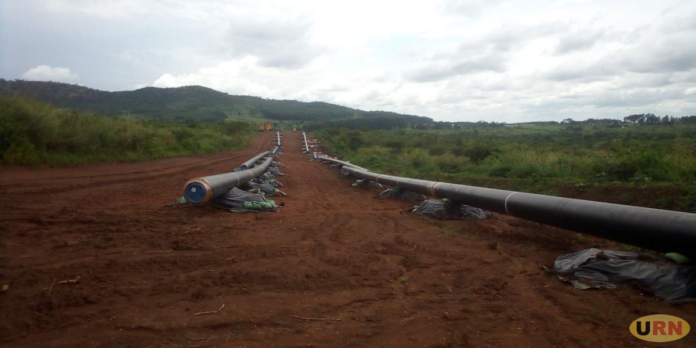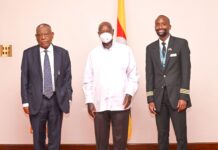By URN
The construction of the 1,443-kilometre East African Crude Oil Pipeline (EACOP), is expected to provide 3,000 jobs to both Ugandans and expatriates.
Currently, the EACOP construction is estimated to cost US$5 billion with its starting point at Nyamasoga village in Kabaale parish, Hoima district employing 157 staff with 14 of them being expatriates. The 3,000 jobs will be available at the peak of the construction phase.
Gloria Sebikari, the Manager of Corporate Affairs at the Petroleum Authority (PAU) explains that the workforce expansion aligns with the broader commitment to maximize local employment in Uganda’s Oil and gas sector, especially during the construction phase.
According to Sebikari, most of the workers who will be employed by the EACOP Project will be accommodated in five camps being established across the country.
She states that the Kabaale camp that will be situated in Hoima district will accommodate 300 workers, the Kakumiro camp will host 400 personnel, the Mubende EACOP camp will accommodate 433 workers, the Sembabule camp will host 478 personnel while the Kyotera camp will accommodate 300 workers.
These camps are strategically positioned to support the workforce during the construction phase of the pipeline.
A joint venture between China Petroleum Pipeline Engineering Co. Ltd and Worley Limited is undertaking the construction of the EACOP.
As of the latest update, the contractors have laid 70 kilometres of the pipeline across both Uganda and Tanzania.
The pipeline will be 24 inches in diameter, insulated, and electrically heated, with six pump stations (two in Uganda), two pressure reduction stations, and a marine export terminal in Tanzania.
The EACOP contractors aim to complete 100 kilometres of pipeline construction each month in both Uganda and Tanzania.
The pipeline route will traverse Uganda through Hoima, Kikuube, Kakumiro, Kyankwanzi, Mubende, Gomba, Sembabule, Lwengo, Kyotera, and Rakai, before crossing the border into Tanzania between Masaka and Bukoba, continuing through Kahama, Singida, Kondoa, and ending in Tanga.
The project is jointly owned by TotalEnergies E&P Uganda (62%), CNOOC Uganda (8%), Tanzania Petroleum Development Corporation (15%), and Uganda National Oil Company.
However, the EACOP project has faced significant opposition from local and international environmental and human rights activists.
In 2022, the European Parliament called for a one-year delay of the project, citing concerns over human rights violations and environmental damage.
The Parliament’s resolution pointed to alleged abuses, including the wrongful imprisonment of human rights defenders, arbitrary suspension of NGOs, and forced evictions of landowners without proper compensation.
The EU Parliament also expressed concern about the potential displacement of more than 100,000 people due to the project.
Further, the Parliament raised alarm about the environmental impact, particularly on protected areas such as the shores of Lake Albert and Murchison Falls National Park, where TotalEnergies plans to dig 132 wells.
The resolution demanded that the extractive activities in these sensitive ecosystems be halted.




